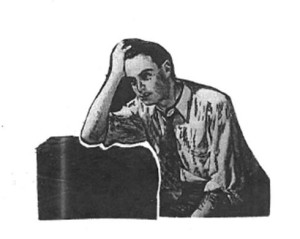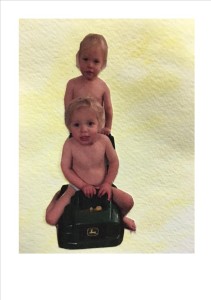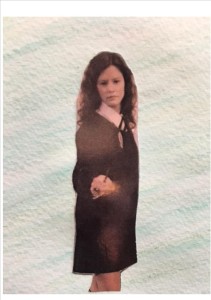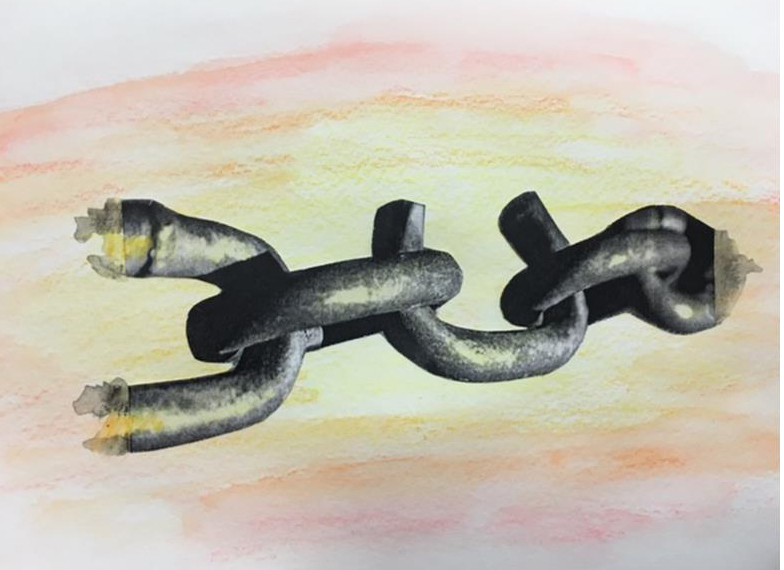It’s an unwritten rule in improv – and in leadership – to not talk about it when you get in your head and feel like you’re tanking.
And I get it: there’s a persistent unwillingness amongst many leaders to admit vulnerability. Just like there’s something about discussing challenges that runs contrary to being in the moment in improv, to being ready to jump on stage and create something out of nothing.
There’s also something in talking that can give us distance and a new perspective to pop us out of our current way of thinking.
For me, this happened recently when I was in a four–run show of the Heirs of Hogwarts at the Bovine Metropolis Theater. I was in a cast with five of the players I admire most. These people work at the theater, have played in Chicago, and show up in the Denver improv community in various roles, multiple times a week.
They anchor their characters in human complexity and make bold choices seemingly effortlessly. They invent rich backstories for these individual creations that are not explained but inform their present actions and make them more compelling. They embody different people on stage from the particular curve of their spine to the tone of their voice. They craft an alternate reality instantaneousl y, and appear entirely fearless in the process.
y, and appear entirely fearless in the process.
I was the weakest link.
Have you ever felt that way?
So often in admiring what everyone else brings to the table, we blind ourselves to what we have to offer. Particularly in creative pursuits, comparison can be damaging, as it so often fuels our self-judgment. And once we let that critical voice sing our shortfalls in the echoing regions of our mind, it gets harder and harder to pull ourselves out of the sinkhole of insecurity.
This is a great time for coaching to jolt us out of our current perspectives.
So take just a minute and call something up. What is a work project or hobby where you feel like you’re in a one-down position? How do you approach that situation? Is it thinking? Berating yourself? Superstitious rituals (If I wear that tie, it’ll get me in the zone)?
For my part, when asked how I was currently approaching improv, my response was “I’m not doing it right.”
No wonder I couldn’t be open and receptive in the moment. My tense, gripping energy flew in the face of the improvisational spirit.
What’s worse is that I attacked the problem as I do so many other things in life: by focusing on it, over-analyzing it, and trying to work my way out of it.
Taking a different angle, my coach told me to walk to a different room in my house and asked what I tripped over on the way to get there.
And I stood face-to-face with my toddlers’ plastic dump truck.
Instantly I had an image of one of the twins sitting in it while the other pushed him around. 
Both wore nothing but diapers and gleeful expressions.
Let’s pause here with that image in our minds.
Do you have one of those ridiculous moments in your recent past? Something that had you stop in your tracks and remember that when we happen take notice, life is often just…silly?
Call that moment up in your mind and do a full scan of the scene as you transport yourself back there. Who else is there? Is there a song or some other sound in the background? What is it that made you laugh, or at least notice the absurdity? Chances are, it took you by surprise and jolted you out of your regular pattern.
That’s what mine did. The Diaper Butt Dumptruck perspective was a great place to be, carefree and unfiltered.
My coach had me act it out. So I pushed an imaginary, to-scale dump truck around the living room as fast as I could. I crouched in the passenger posture and flung myself across the dining room at a proportionate speed.
And it was a rush.
My arms tingled and my stomach came to life with butterflies. I felt the thrill of moving fast, without knowing exactly where I was going. I met the drive with wide eyes, held breath and a huge grin.
That’s what I wanted improv to feel like again. So I vowed to take this goofy playfulness into warm-ups where my cast mates and I invented magical animals and jinxed each other with made-up curses. My friends met me with a powerful “Yes And” and heightened my childlike excitement. Then we carried that exhilaration on stage.
To me, that is the power of coaching and the power of improv itself: the full experiencing of a situation by calling it into your mind and heart and body. It’s the thrill of the unexpected shaking us loose from our routines, and it’s our willingness to let the wisdom of our bodies lead.
When you next get stuck in a mental rut, see if one of these improv strategies can’t help you get back in the present and put you more in your physical experience:
- Take a deep breath and lean into one of your senses. Focusing on sight, sound, smell, taste or touch can bring you vibrantly back to the present.
- Go back to basics: listen closely to those you’re with and respond honestly.
- Initiate a Do-Over.
- Use your seemingly slow start as permission to take even more risks.
- Go still. Reflect on your desires and then go after them.
- Look for a chance to support. Not being the focus can take off some pressure and enliven our playfulness.
- Try to reduce distractions and focus on purpose. Why is it you’re doing what you’re doing?
- Get lost in the action; try to let go of control and worry.
- Stop talking.
- Go where the fun is.
What here works for you, and what other ways have you found to stop self-judgment and get back to the present?

